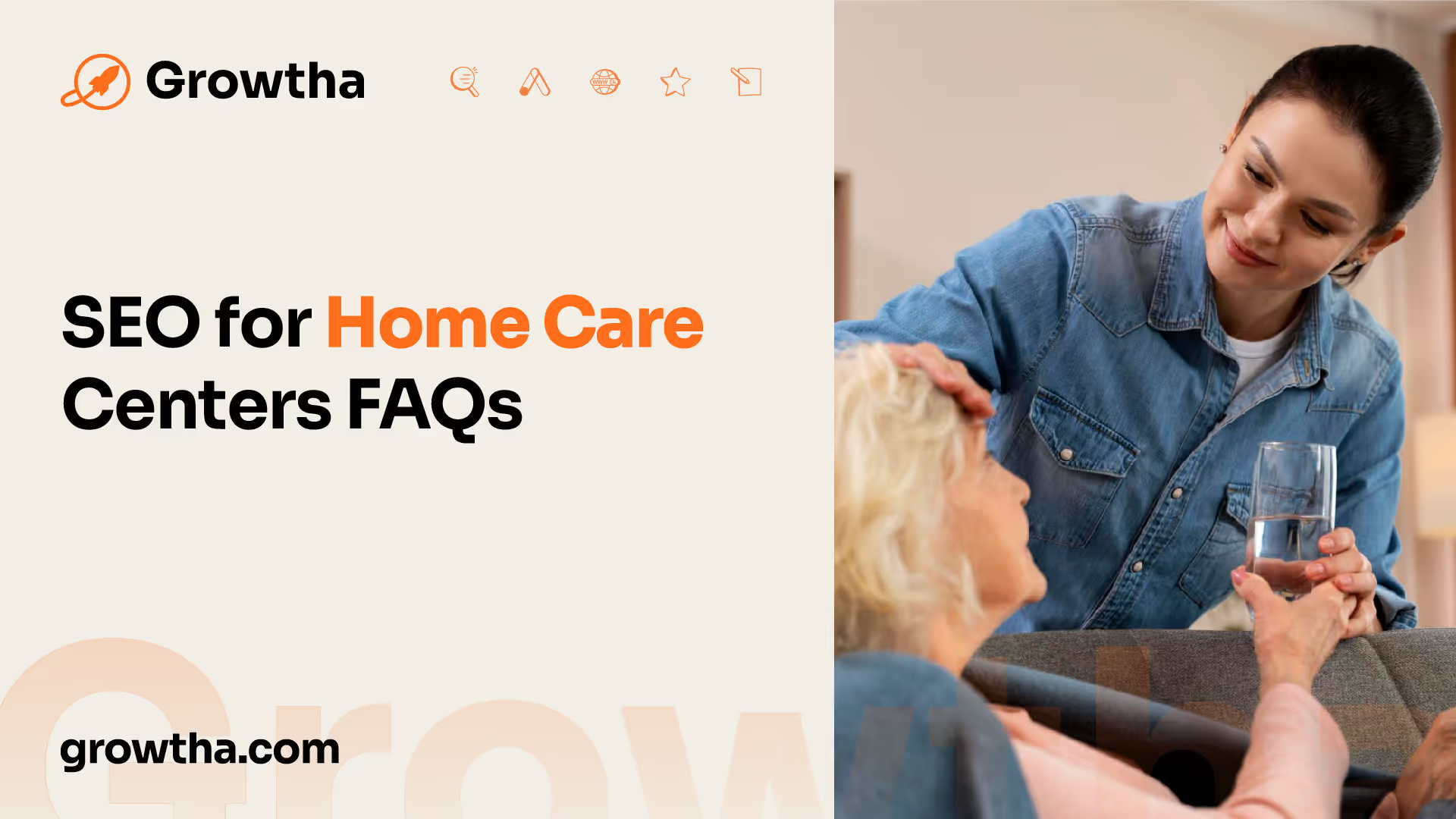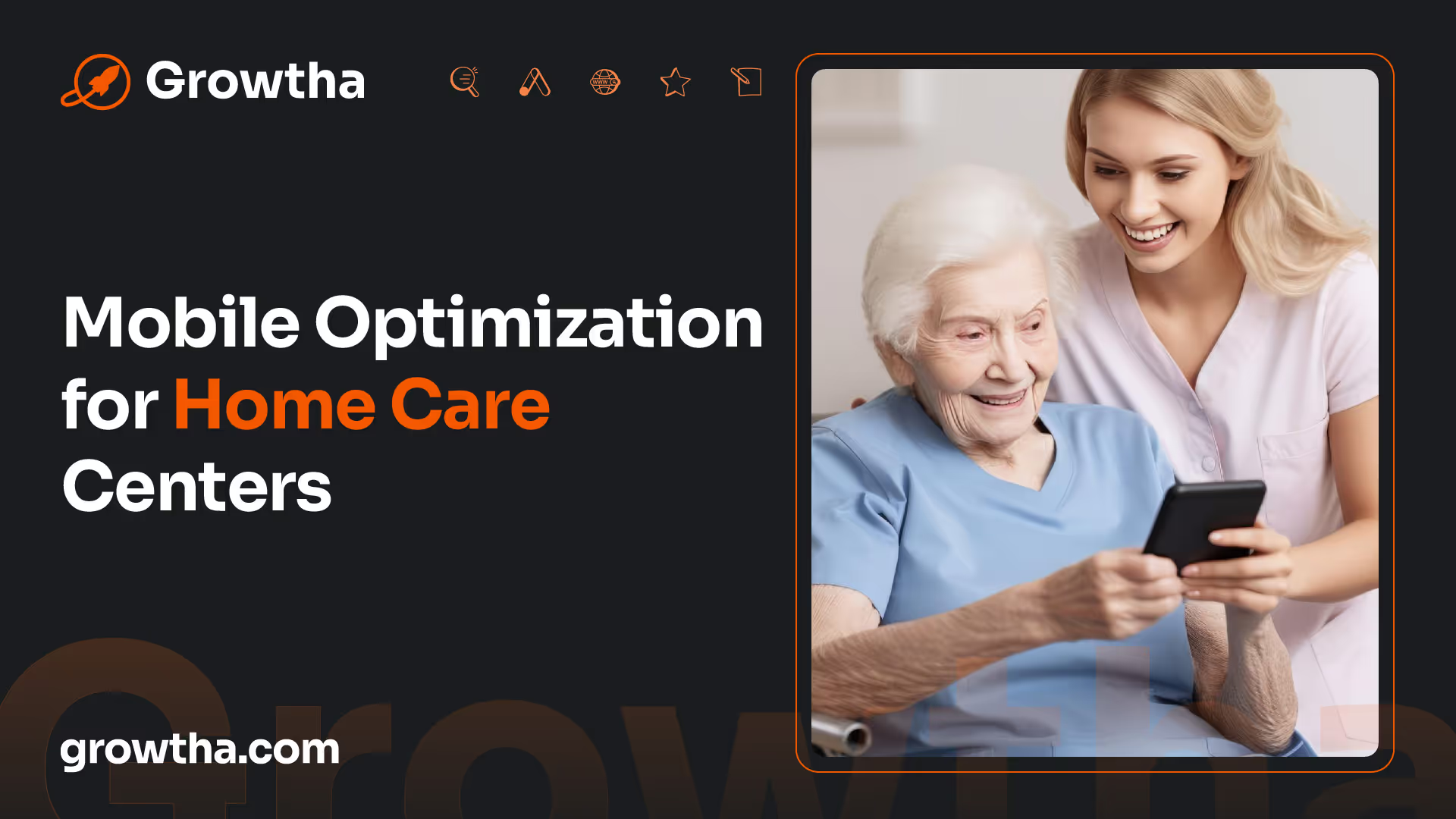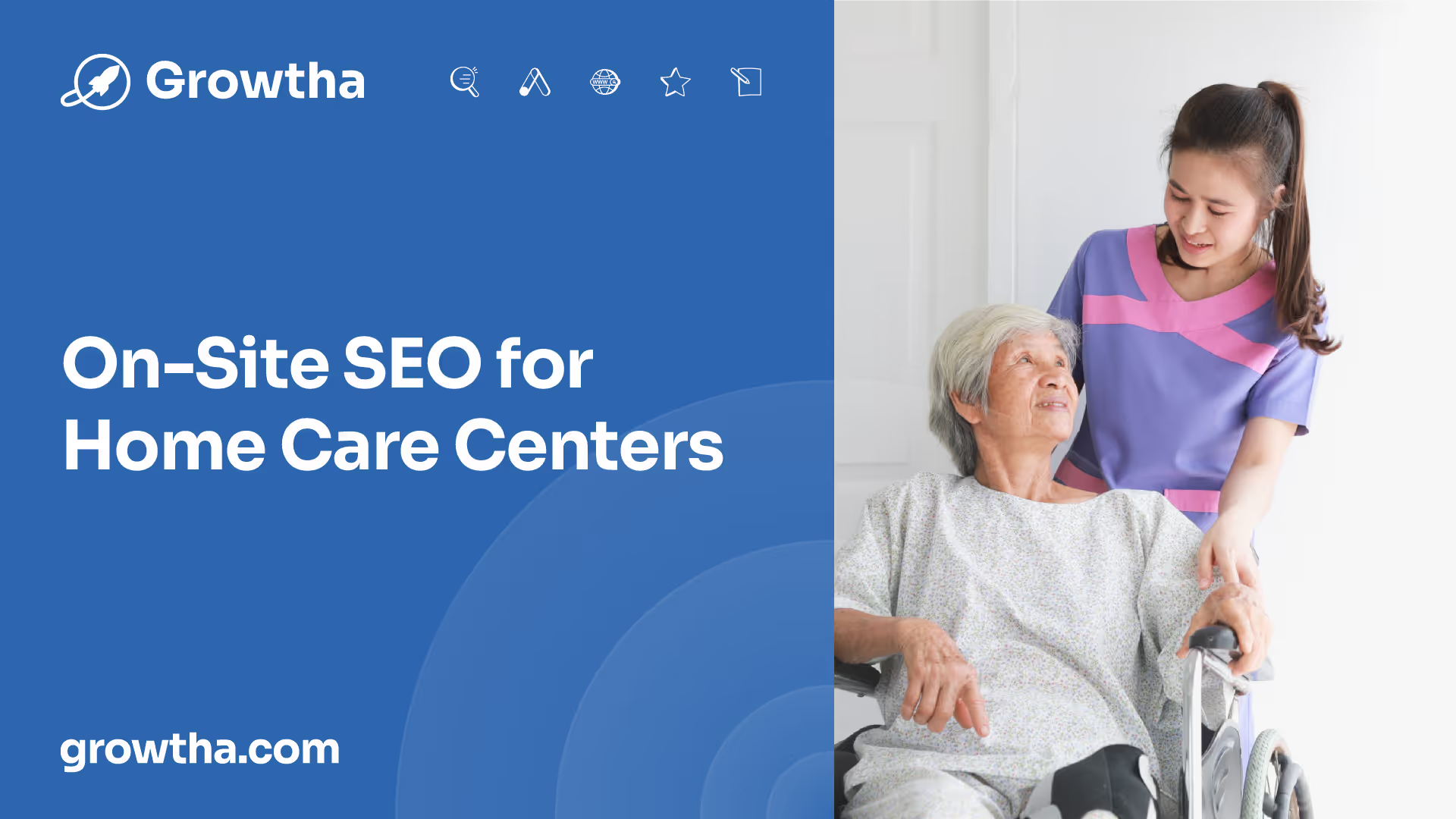SEO for Home Care Centers FAQs
SEO plays a vital role in improving online visibility, driving organic traffic, and ultimately, growing your business.


SEO for Home Care Centers FAQs
The Importance of SEO for Home Care Centers
In today's digital landscape, having a strong and carefully crafted SEO (Search Engine Optimization) strategy is crucial for home care centers looking to increase brand awareness and attract new clients. SEO plays a vital role in improving online visibility, driving organic traffic, and ultimately, growing your business.
Understanding SEO for Home Care Centers
SEO for home care centers involves optimizing your website and online presence to improve your rankings on search engine results pages (SERPs). The foundation of an effective SEO strategy lies in the use of keywords, which are the words and phrases that users enter into search engines like Google and Bing [1]. By incorporating relevant keywords on your website, search engines can better understand the content of your pages, evaluate their relevance, and rank them accordingly.
Benefits of SEO for Home Care Centers
Implementing a well-executed SEO strategy can yield several benefits for home care centers:
- Increased Online Visibility: By optimizing your website for relevant keywords, you improve your chances of appearing in the top search results when potential clients search for services related to home care centers. This increased visibility allows you to reach a larger audience and attract more organic traffic to your website.
- Targeted Traffic: SEO helps you target specific keywords and phrases that are relevant to your services. By appearing in search results for these targeted keywords, you can attract highly qualified traffic to your website, increasing the chances of converting visitors into clients.
- Brand Credibility and Trust: Showing up consistently in search results and maintaining a strong online presence through SEO efforts helps establish your home care center as a credible and trustworthy source. This can build confidence in potential clients and increase the likelihood of them choosing your services over competitors.
- Cost-Effective Marketing: SEO is a cost-effective marketing strategy compared to traditional advertising methods. While it requires an investment of time and effort, the long-term benefits outweigh the costs. Once your website is optimized and ranks well, you can continue to attract organic traffic without ongoing advertising expenses.
To maximize the benefits of SEO for your home care center, it's important to conduct thorough keyword research. By using tools like SEMrush, Ahrefs, Surfer SEO, and Moz, you can gain valuable insights into search volume, keyword difficulty, and competitor strategies for individual keywords [1]. This research allows you to create helpful and informative content that aligns with the specific keywords and phrases your target audience is searching for.
In conclusion, SEO is an essential component of any comprehensive marketing strategy for home care centers. By optimizing your website for keywords and improving your online visibility, you can attract targeted traffic, build credibility, and establish your brand as a trusted provider of home care services.

Mobile Optimization for Home Care Centers
In today's digital landscape, mobile optimization plays a crucial role in the success of SEO for home care centers. With the increasing use of smartphones and tablets, it is essential to ensure that your website is optimized for mobile devices. In this section, we will explore the impact of mobile optimization and strategies to enhance the mobile experience for your target audience.
The Impact of Mobile Optimization
Mobile optimization is not only about creating a visually appealing website on mobile devices, but it also has a significant impact on your search engine rankings, patient engagement, and attracting more patients to your home care center [2]. With more than half of global web traffic coming from mobile devices, it is crucial to meet the expectations of mobile users by providing a seamless and user-friendly experience.
By optimizing your website for mobile, you can improve its visibility, user trust, and loyalty. Mobile users expect fast loading times, easy navigation, and relevant information at their fingertips. Meeting these expectations can lead to higher engagement, increased conversions, and ultimately, a positive impact on the success of your home care center.
Strategies for Mobile Optimization
To ensure an optimal mobile experience for your target audience, consider implementing the following strategies:
1. Responsive Design
Responsive design is a fundamental aspect of mobile optimization. It involves creating a website that automatically adjusts its layout and content to fit different screen sizes and resolutions. By implementing responsive design, your website will provide a consistent and user-friendly experience across all devices, whether it's a smartphone, tablet, or desktop.
2. Page Speed Improvement
Fast load times are crucial for mobile users who expect instant access to information. Optimizing your website's page speed can help reduce bounce rates and improve user experience. To evaluate your mobile performance, you can use tools like Google's Mobile-Friendly Test, PageSpeed Insights, and Google Search Console. These tools can identify issues affecting mobile usability and provide recommendations on how to fix them.
3. Simplified Navigation
Clear and intuitive navigation is essential for mobile users. Make sure your website's menu and navigation elements are easy to find and use on smaller screens. Simplify the menu structure and use thumb-friendly buttons for better usability. Additionally, consider implementing a search function to help users find the information they need quickly.
4. Readable Text and Optimized Media
Ensure that the text on your website is easily readable on mobile devices. Use legible fonts and appropriate font sizes to enhance the user experience. Optimizing images and videos for mobile is also crucial. Compress images to reduce file sizes without compromising quality, and use HTML5 for videos to ensure compatibility across devices.
5. Reduced Pop-Ups
While pop-ups can be effective for lead generation, they can also be intrusive and disruptive on mobile devices. Consider minimizing the use of pop-ups or implementing mobile-specific pop-up designs that are less obtrusive. Maintaining a balance between user experience and your marketing goals is key.
6. Consistent Branding
Maintaining consistent branding across all devices is important for building trust and recognition. Ensure that your logo, colors, and overall design elements remain consistent on mobile devices. Consistency in branding enhances the user experience and strengthens your home care center's online presence.
By implementing these mobile optimization strategies, you can provide a seamless and engaging experience for your mobile users. Prioritizing user experience and accessibility will not only improve your search engine rankings but also contribute to the overall success of your home care center's online presence.

On-Site SEO for Home Care Centers
When it comes to optimizing a home care center's website for search engines, on-site SEO plays a crucial role. This section will focus on two important aspects of on-site SEO: optimizing content and meta data, and implementing internal linking strategies.
Optimizing Content and Meta Data
To improve the visibility and ranking of a home care center's website, it's essential to optimize the content and meta data. By strategically incorporating relevant keywords into the content and meta descriptions, search engines can better evaluate and rank the website's content on search engine results pages (SERPs).
When optimizing content, it's important to create informative and valuable content that addresses the needs and concerns of the target audience. Incorporating relevant keywords naturally throughout the content can help search engines understand the context and relevance of the content. However, it's crucial to avoid keyword stuffing, as search engines penalize websites for excessive keyword usage. Focus on providing valuable information and engaging the audience, while strategically incorporating keywords into headings, subheadings, and body paragraphs.
Meta data, including meta titles and meta descriptions, provide concise summaries of the content on a webpage. These snippets of information appear in search engine results and can significantly impact click-through rates. It's important to optimize meta titles and descriptions by including relevant keywords and compelling calls-to-action. By crafting enticing and informative meta data, home care centers can increase the likelihood of attracting clicks from potential visitors.
Internal Linking for SEO Success
Internal linking is another crucial aspect of on-site SEO for home care centers. By strategically linking relevant pages within the website, internal linking helps search engines understand the structure and relevance of the content. It also enhances user experience by providing easy navigation between related pages.
When implementing internal links, consider the context and relevance of the linked pages. Use anchor text that accurately describes the destination page and its content. For example, instead of using generic phrases like "click here," use descriptive anchor text like "learn more about our home care services." This not only helps search engines understand the content on the linked page but also provides valuable information to users.
Furthermore, ensure that the website's internal linking structure is logical and intuitive. Organize the links in a hierarchical manner, with important pages receiving more internal links. By doing so, search engines can identify the importance and relevance of different pages within the website.
By optimizing content and meta data, as well as implementing effective internal linking strategies, home care centers can enhance their on-site SEO efforts. These practices not only improve website ranking but also provide a better user experience by delivering valuable and relevant content to visitors.
Off-Site SEO for Home Care Centers
While on-site SEO focuses on optimizing your website's content and structure, off-site SEO plays a crucial role in improving your home care center's online visibility. Off-site SEO involves implementing link building strategies and acquiring high-quality backlinks from reputable websites.
Importance of Off-Site SEO
Off-site SEO is essential for home care centers as it helps to establish the authority and credibility of your website. Search engines like Google consider the number and quality of backlinks pointing to your site as a vote of confidence from other websites [4]. The more reputable and relevant websites that link to your home care center's website, the higher your site is likely to rank in search engine results.
Backlinks not only increase your site's visibility but also drive referral traffic to your website from other trusted sources. This can result in more potential clients discovering your services and ultimately lead to increased inquiries and conversions.
Link Building Strategies
Link building is the process of acquiring backlinks from other websites. Here are some effective link building strategies for home care centers:
- Guest Blogging: Offer to write informative and valuable content for other websites in the healthcare industry. In exchange, include a link back to your home care center's website. This not only helps to establish you as an industry expert but also generates high-quality backlinks to your site.
- Local Events and Partnerships: Host local events such as health fairs or job fairs to showcase your services and network with the community. These events provide opportunities to connect with other local businesses or organizations, which can lead to valuable backlinks from their websites.
- Online Directories and Listings: Submit your home care center's information to relevant online directories and listings. These platforms often include a website link, helping to increase your online presence and generate backlinks from authoritative sources.
- Content Marketing: Create share-worthy content through blogging or creating informative resources for your target audience. Companies with blogs receive 97% more inbound links, which significantly boosts off-page SEO efforts. Promote your content through social media channels, email newsletters, and outreach to other websites for potential collaborations or features.
Remember, while acquiring backlinks is important, the quality of the backlinks matters just as much. Aim for links from reputable and relevant websites in the healthcare or local community. Building a strong off-site SEO strategy takes time and effort, but it can greatly enhance your home care center's online visibility and attract more potential clients.
By implementing these link building strategies, your home care center can improve its off-site SEO, enhance its online presence, and ultimately drive more organic traffic to your website.
Keyword Research for Home Care Centers
Keyword research plays a crucial role in the success of SEO for home care centers. By understanding the importance of keywords and conducting effective keyword research, home care centers can optimize their online presence and improve their visibility in search engine results pages (SERPs).
The Role of Keywords in SEO
Keywords are the words and phrases that users enter into search engines like Google and Bing when looking for information, products, or services. In the context of home care centers, keywords are essential for creating content that is relevant to the target audience and aligns with their search intent [1].
Incorporating keywords throughout a home care center's website helps search engines understand the content of the pages. This allows search engine algorithms to evaluate and rank the content based on its relevance to a user's search query. By targeting specific keywords, home care centers can attract organic traffic to their website and increase their chances of reaching individuals in need of their services [1].
To create helpful content for individuals searching for keywords related to home care agencies, it is crucial to incorporate exact match keywords and variations. Examples of keyword variations could include "in-home nursing care," "nursing care at home," or "home nurse." By including these variations, home care centers can cater to a broader range of search queries and increase their chances of appearing in relevant search results [1].
Conducting Effective Keyword Research
Conducting thorough keyword research is an essential step in optimizing the online presence of home care centers. Advanced keyword research tools such as SEMrush, Ahrefs, Surfer SEO, and Moz can provide valuable insights into search volume, keyword difficulty, and competitor analysis for individual keywords [1].
When conducting keyword research, it is important to consider the following factors:
- Relevance: Choose keywords that are highly relevant to the services offered by the home care center.
- Search Volume: Assess the search volume for keywords to determine their popularity and potential reach.
- Competition: Evaluate the difficulty of ranking for specific keywords by analyzing the level of competition from other websites.
- Intent: Consider the user's search intent when selecting keywords to ensure that the content aligns with what they are looking for.
By conducting effective keyword research, home care centers can identify the most valuable keywords to target in their content. This helps them create informative and relevant content that resonates with their target audience and improves their visibility in search engine results.
Remember to regularly review and update your keyword strategy based on changes in search trends, industry developments, and the evolving needs of your target audience. A well-researched and optimized keyword strategy can significantly enhance the SEO efforts of home care centers and drive more organic traffic to their website.
Local SEO for Home Care Centers
When it comes to promoting a home care center online, local SEO plays a vital role in attracting potential clients in the local area. Local SEO focuses on optimizing a website to appear in search engine results that are relevant to a particular geographic location. Let's explore the importance of local SEO and how optimizing the Google My Business page can boost local visibility.
Importance of Local SEO
Local SEO is crucial for home care centers as it helps increase website traffic and brand exposure through unpaid search engine results that are specific to a particular geographic area [7]. By implementing effective local SEO strategies, home care centers can improve their chances of appearing in local search results when individuals are seeking services in their specific locality.
Optimizing for local SEO allows home care centers to connect with their target audience in a more targeted and relevant manner. It helps ensure that the website is visible to those searching for home care services in their local area, increasing the likelihood of attracting potential clients who are geographically close to the center.
Optimizing Google My Business Page
One of the key components of local SEO is optimizing the Google My Business page. Setting up a Google My Business Page is crucial for boosting local SEO as it adds the company to the Google My Business Index. This makes it easier for people to locate the business and leave reviews, which can enhance overall SEO rankings [7].
To optimize the Google My Business page effectively, home care centers should ensure that all key business information, such as the business name, phone number, and address, is consistent across various online listings. Inconsistencies in this information may negatively impact local SEO rankings, as search engines like Google may view the business as illegitimate or untrustworthy [7].
In addition to consistent information, home care centers should also include relevant keywords in the business description and other sections of the Google My Business page. Including local keywords can significantly improve local SEO by narrowing the focus for people searching in a specific area, making the business more likely to appear in local searches by users seeking services within their locality.
By optimizing the Google My Business page and ensuring accurate and consistent information, home care centers can enhance their local SEO presence and increase the chances of attracting local clients who are actively seeking their services.
Optimizing Website Speed for SEO
In the world of SEO, website speed plays a crucial role in determining the success of your optimization efforts. Faster websites not only improve user experience but also gain favor with search engines like Google. In this section, we will explore the impact of website speed on SEO and provide some tips for improving it.
The Impact of Website Speed on SEO
Website speed is a critical factor in SEO, with experts recommending load times of no longer than five seconds. Slow-loading websites can lead to a poor user experience, resulting in high bounce rates and lower rankings on search engine results pages [6].
Search engines, including Google, prioritize user experience and satisfaction. They understand that users expect websites to load quickly and provide the information they are looking for without delay. Therefore, search engines reward websites that deliver faster load times with higher visibility and rankings.
By optimizing your website speed, you not only enhance user experience but also increase the chances of attracting and retaining visitors. A faster website encourages users to explore more pages, engage with your content, and potentially convert into leads or customers.
Tips for Improving Website Speed
Improving website speed requires a combination of technical optimizations and best practices. Here are some tips to help you optimize your website speed for better SEO performance:
- Optimize Images: Compress and optimize images to reduce file size without compromising quality. Tools like TinyPNG or ImageOptim can help with this [3].
- Enable Browser Caching: Leverage browser caching to store static resources, such as images and scripts, on the user's device. This reduces the number of server requests, resulting in faster load times for returning visitors.
- Minify CSS and JavaScript: Minify and combine CSS and JavaScript files to reduce their size and eliminate unnecessary characters. This reduces the time it takes for browsers to parse and load these resources.
- Reduce Redirects: Minimize the number of redirects on your website as each redirect adds an extra step in the loading process, resulting in slower load times.
- Use a Content Delivery Network (CDN): Utilize a CDN to deliver your website's content from servers geographically closer to your users. This helps reduce latency and improves load times, especially for users located far from your website's hosting server.
- Optimize Server Response Time: Ensure that your hosting server is properly configured and optimized to handle requests efficiently. Consider using a reliable hosting provider that offers fast response times.
- Prioritize Above-the-Fold Content: Load critical content above the fold first, allowing users to see and interact with the most important elements of your webpage while the rest of the page continues to load.
- Minimize Plugins and Scripts: Remove unnecessary plugins and scripts from your website as they can slow down load times. Only use essential scripts and optimize them for efficiency.
By implementing these tips, you can significantly improve your website speed, providing a better user experience and boosting your SEO efforts. Remember, optimizing website speed is an ongoing process, and regular monitoring and adjustments are necessary to ensure optimal performance.
Creating Share-Worthy Content for SEO
When it comes to SEO for home care centers, creating share-worthy content plays a crucial role in boosting online visibility and attracting potential clients. Content marketing, including blogging and other forms of content creation, can significantly enhance your SEO efforts and drive organic traffic to your website. Let's explore the benefits of content marketing and strategies for creating engaging content.
Benefits of Content Marketing
Content marketing offers several key benefits for home care centers looking to improve their SEO:
- Increased inbound links: Companies with blogs receive 97% more inbound links, which are essential for off-page SEO [6]. These links from other reputable websites indicate the relevance and authority of your content, helping to improve your search engine rankings.
- Enhanced online visibility: By consistently publishing valuable and informative content, you can increase your online presence and visibility. This can lead to higher rankings in search engine results, making it easier for potential clients to find your home care center.
- Established expertise and trust: Creating high-quality content allows you to demonstrate your expertise in the home care industry. By providing valuable information, answering frequently asked questions, and addressing common concerns, you can build trust with your audience and position your home care center as a reliable source of information and care.
Strategies for Creating Engaging Content
To create engaging content that resonates with your target audience and drives SEO success, consider the following strategies:
- Understand your audience: Conduct thorough research to understand the needs, challenges, and interests of your target audience. This knowledge will help you create content that addresses their specific concerns and provides valuable solutions.
- Provide useful and informative content: Focus on creating content that educates and informs your audience. Write blog posts, articles, or guides that offer practical tips, industry insights, and relevant information about home care services. This positions your home care center as a trusted resource for potential clients.
- Utilize different content formats: Experiment with different content formats to keep your audience engaged. In addition to written articles, consider incorporating videos, infographics, podcasts, or interactive content. This variety adds interest and caters to different learning preferences.
- Optimize for mobile: As more than half of global web traffic comes from mobile devices, optimizing your content for mobile is crucial. Ensure that your website is mobile-friendly and that your content is easily accessible and readable on smartphones and tablets.
- Include compelling visuals: Incorporate high-quality and relevant visuals, such as images and videos, into your content. Visuals not only make your content more appealing but also help to convey information more effectively.
- Promote social sharing: Encourage readers to share your content by including social sharing buttons on your website and blog. This can expand the reach of your content and attract a wider audience.
By implementing these strategies, you can create share-worthy content that not only enhances your SEO efforts but also establishes your home care center as a reputable and authoritative source in the industry. Remember to consistently produce valuable content and stay up-to-date with the latest trends and topics relevant to your target audience.
Leveraging Online Reviews for SEO
To enhance the search engine optimization (SEO) efforts for home care centers, leveraging online reviews can be a powerful strategy. Testimonials and reviews play a crucial role in building trust and credibility with potential clients. In this section, we will explore the power of testimonials and reviews and how to incorporate them effectively.
The Power of Testimonials and Reviews
Online reviews have become a significant influence on consumer decision-making. According to WebFX, 88% of consumers trust online reviews as much as personal recommendations. By highlighting positive testimonials and reviews from past patients on your home care center's website, you can leverage their power to attract and convert new clients.
Positive reviews act as social proof, demonstrating the quality of care provided by your home care center. They provide reassurance to potential clients and help establish your center as a reliable and reputable choice. Search engines also take into account the sentiment and frequency of reviews when ranking websites. Therefore, having a strong collection of positive reviews can positively impact your SEO efforts.
Incorporating Client Testimonials
To effectively incorporate client testimonials into your website for SEO purposes, consider the following strategies:
- Create a dedicated testimonials page: Design a separate page on your website specifically for displaying client testimonials. This page should be easily accessible from your homepage and navigation menu.
- Include testimonials throughout your website: In addition to a dedicated testimonials page, sprinkle client testimonials throughout your website, especially on important landing pages. This can include placing testimonials on service pages or alongside relevant content to reinforce the positive experiences of your clients.
- Optimize testimonials for keywords: When writing testimonials or requesting them from clients, encourage the use of relevant keywords related to your home care services. This helps improve the visibility of your testimonials in search engine results pages (SERPs) when potential clients search for specific services.
- Use schema markup: Implement schema markup, such as the Review schema, to provide structured data to search engines. This markup helps search engines understand and display your testimonials more prominently in SERPs.
- Respond to reviews: Engage with clients who leave reviews by responding to them. This shows that you value client feedback and care about their experiences. Responding to reviews also encourages more clients to leave reviews, which can further enhance your online presence and SEO efforts.
By leveraging the power of testimonials and reviews, you can enhance your home care center's online visibility, build trust with potential clients, and improve your overall SEO performance. Remember to regularly monitor and manage your online reviews to ensure a positive online reputation and continuously attract new clients.
References
[1]: https://www.homecaremarketing.com/seo/what-home-care-keywords-can-do/
[2]: https://quickcreator.io/articles/mobile-optimization-healthcare-seo-responsive-design-page-speed-navigation/
[3]: https://www.linkedin.com/advice/3/youre-struggling-improve-your-websites-itxae
[4]: https://sagapixel.com/seo/seo-for-home-care/
[5]: https://www.forbes.com/sites/forbescommunicationscouncil/2020/09/29/local-seo-how-to-attract-local-clients-to-your-home-care-agency/
[6]: https://www.webfx.com/industries/local-consumer-services/in-home-care-providers/seo/
[7]: https://www.homecaremarketing.com/seo/best-practices-to-boost-local-seo-for-your-home-care-agency/







